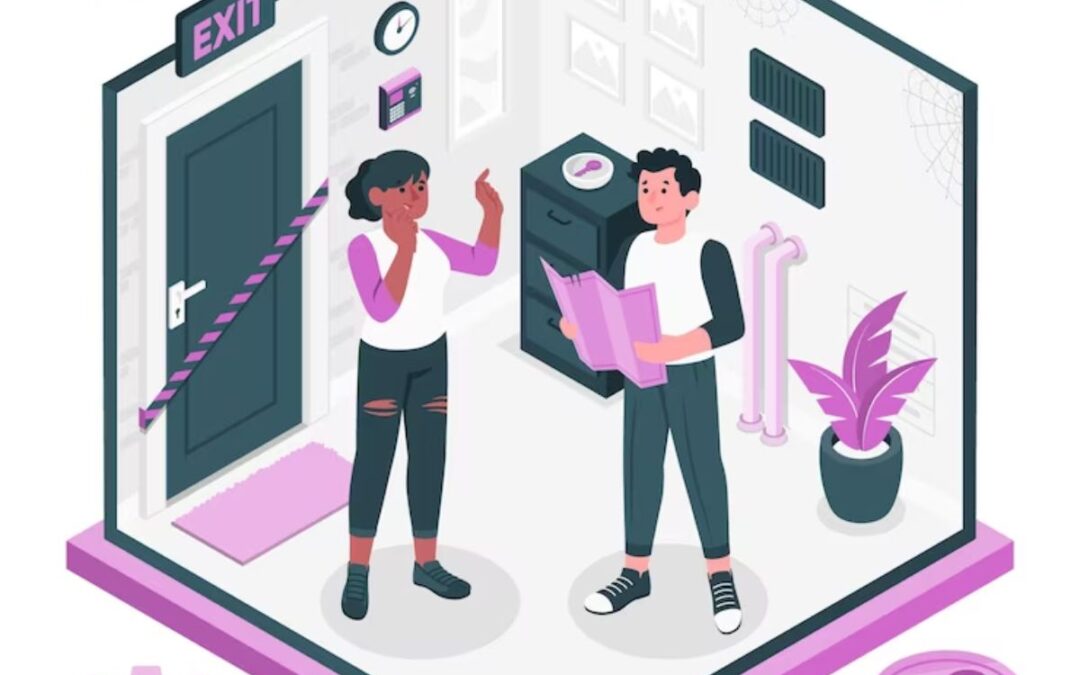Hey there, fellow adventurers! Today, we’re taking a deep dive into the fascinating world of escape rooms and debunking the myths surrounding them. All brought to you by Lock N Escape, Hyderabad’s premier escape room experience!
So, buckle up because we’re about to debunk some common myths and misconceptions about escape rooms. Let’s get started, shall we?
What Are Escape Rooms?
Escape rooms are live-action, immersive experiences where participants are “locked” inside a themed room and tasked with solving a series of puzzles and challenges to escape within a set time limit—usually 60 minutes. Sounds thrilling, right?
But escape rooms often face misconceptions that hinder their true potential. Myths about them being too scary, only for geniuses, or just a fad, create barriers to entry for many. Debunking these myths can unveil a world of team building, problem-solving, and enjoyable entertainment for all.
Team Building Weekend Getaways in India.
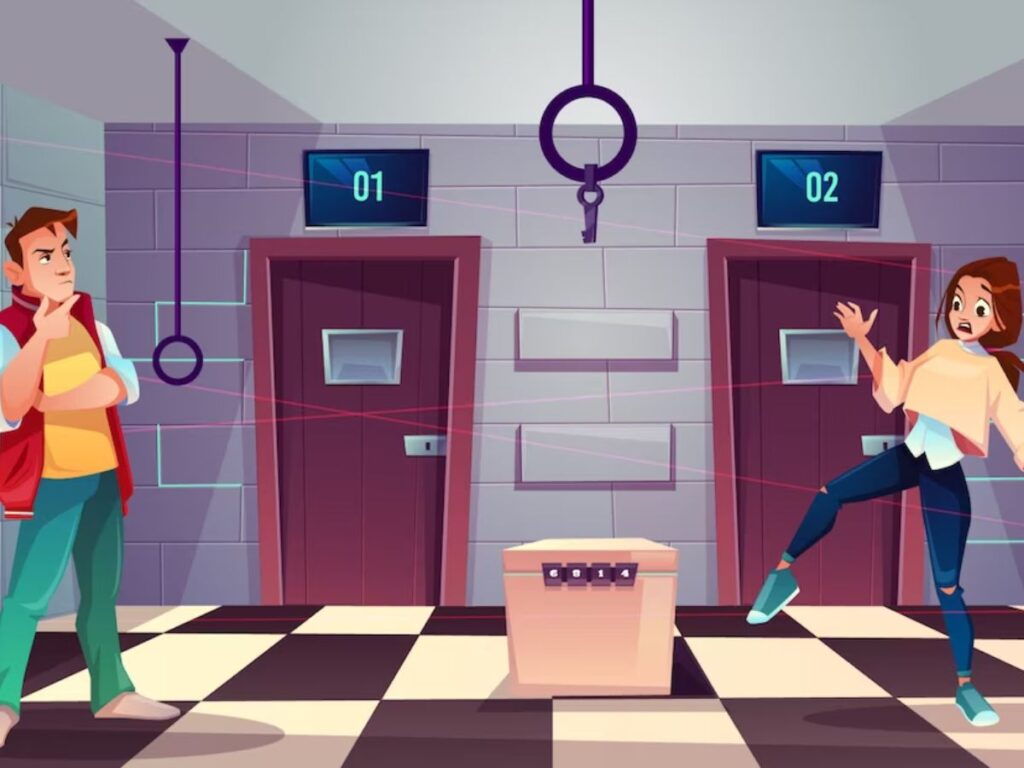
Debunking the Myth – Do You Have to Be Smart to Go to an Escape Room?
Here’s the kicker: you don’t have to be a genius to enjoy escape rooms. You just need a curious mind and a sense of adventure! Escape rooms are designed for people of all ages and intellects. The key to success is teamwork, communication, and a willingness to have fun!
Analyzing the “Smart Enough” Myth
Escaping from a Room Requires Intelligence or Problem-Solving Skills
Newsflash: it’s not about raw intelligence but your problem-solving skills determining your success in an escape room. Can you think on your feet, collaborate with others, and adapt to new situations? Then you’re golden!
Having Knowledge or Expertise Has an Advantage in Escape Rooms
Specific knowledge or expertise can help but is not a make-or-break factor. More often than not, escape rooms are designed to be accessible to everyone, regardless of their background.
Adrenaline pumping activities in Hyderabad.
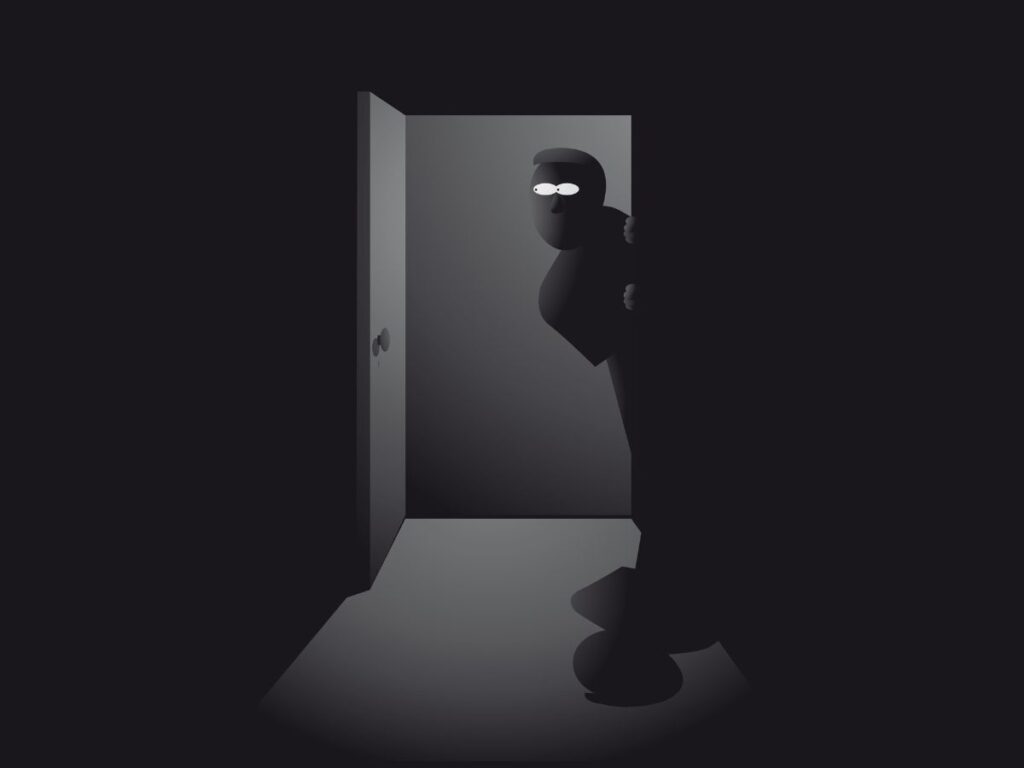
Debunking Other Common Myths About Escape Rooms
Myth: Escape Rooms Require High IQ
Nope! Escape rooms are designed for people of all intelligence levels. They’re about fun, teamwork, and adventure, not your IQ score. Escape rooms consist of different difficulty levels. So check your difficulty level before you book an escape room.
Myth: Escape Rooms Are Only for Young People
Age is just a number, my friends! Escape rooms are a fantastic experience for people of all ages, from kids to grandparents. Certain escape rooms also host events surrounding birthdays, anniversaries, corporate events, team-building activities for students and adults alike or any other special event. The event consists of escape room games proceeding with the event celebration.
The ultimate guide to family-friendly escape rooms.
Myth: Only Those Who Love Puzzles Can Escape
Not a puzzle whiz? No worries! While puzzles play a significant role, escape rooms cater to diverse participants, not just puzzle enthusiasts. Incorporating storytelling, exploration, and teamwork elements creates an inclusive and enjoyable experience for individuals with varying interests and skill sets. With a focus on collaboration, escape rooms become an accessible and engaging activity for everyone.
Myth: Escape Rooms are Only For Extroverts
Introverts, rejoice! Escape rooms are designed for people with diverse personality types, including introverts. The problem-solving nature of these experiences allows introverts to showcase their analytical and observation skills, while teamwork fosters communication and bonding among participants. Escape rooms provide a balanced environment where both introverts and extroverts can contribute and excel. It is a great way to bond with friends, family, or coworkers in a fun, low-pressure environment.
Myth: You Need to be Physically Fit to Escape
While some escape rooms may involve minor physical activities, most focus on mental challenges and teamwork rather than physical fitness . Rooms are often designed to accommodate people of various abilities and fitness levels, ensuring a fun and inclusive experience. Many escape rooms offer options to customize the experience based on participants’ needs, so physical fitness is not a prerequisite for success.
Health benefits of an escape room.
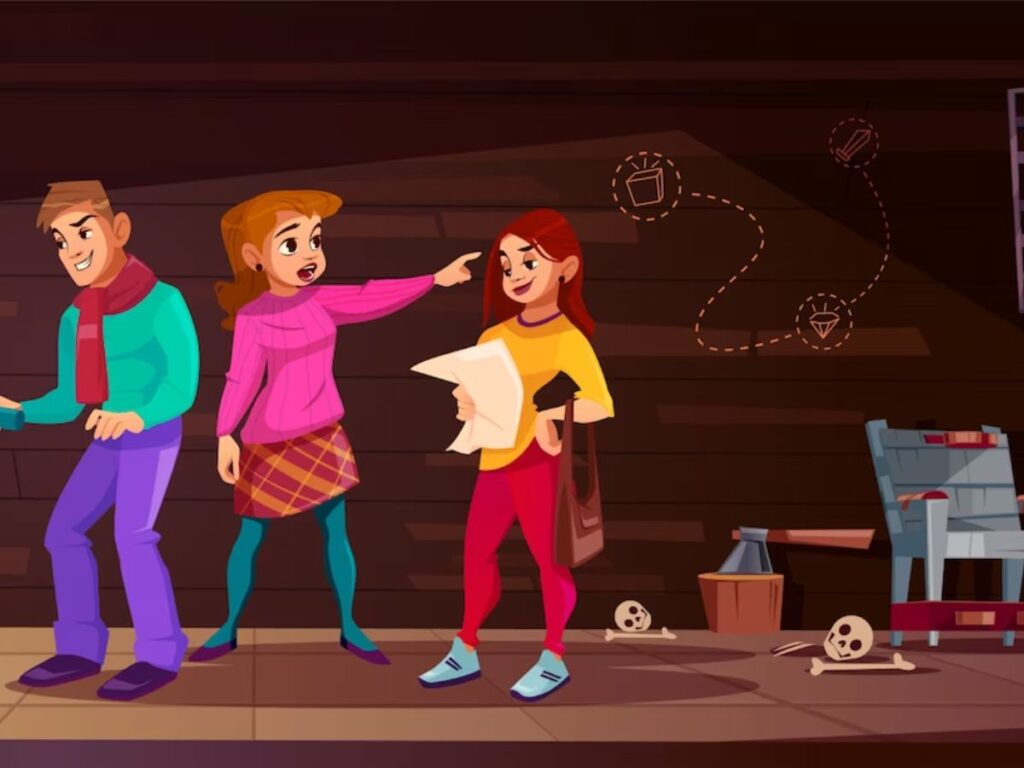
The Psychology of Escape Rooms
The psychology of escape rooms delves into the mental processes and group dynamics at play in these immersive experiences. As participants collaborate to solve puzzles, they engage in cognitive functions, creativity, and communication skills.
Escape rooms offer a unique lens through which to study human behaviour, decision-making, and problem-solving in real-time scenarios. However, some may feel increased stress and pressure owing to the time limit. But keep an open mind and read below!
The Impact of Stress and Pressure on Problem-Solving Abilities
Stress and pressure can both hinder and enhance problem-solving abilities, depending on their intensity and duration. While moderate stress may boost cognitive performance, excessive stress can impair focus, decision-making, and creative thinking. If taken positively, stress and pressure can actually boost your problem-solving abilities, making escape rooms the perfect environment for you to rise to the occasion.
The Impact of a Growth Mindset on Success in Escape Rooms
A growth mindset embraces challenges and learning from setbacks fostering adaptability and resilience in escape rooms. This mindset encourages perseverance and creative problem-solving, increasing the likelihood of success and personal growth.
The Role of Creativity in Escape Room Success
Creativity is vital in escape room success, enabling participants to think outside the box and uncover unique solutions. Players can tackle puzzles more effectively and overcome seemingly overwhelming challenges by tapping into imaginative thinking.
Explore more escape rooms and the psychology behind them.
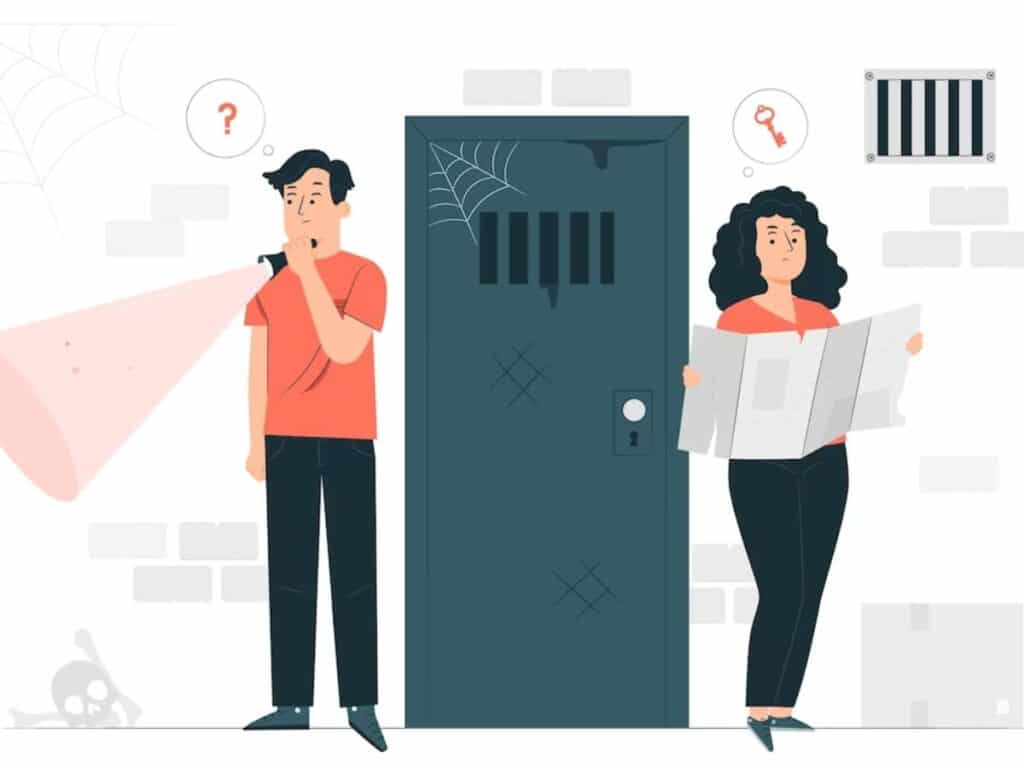
What Skills Do You Need to Escape?
Basic skillsets are crucial for conquering escape rooms, requiring participants to collaborate, problem-solve, and think creatively. Mastering these abilities enhances both the enjoyment and success of these immersive experiences.
Problem-Solving Skills
Escape rooms require basic problem-solving skills involving critical & creative thinking, pattern recognition, and logical deduction. These abilities and effective teamwork pave the way for a triumphant escape.
Time Management Skills
Effective time management is essential in escape rooms, as participants must prioritize tasks and allocate resources wisely. Players work together to beat the clock and secure victory by balancing speed and accuracy.
- Do not waste much time on a particular clue
- If you cannot solve one, move on to the next clue
- You shouldn’t take more than 5 minutes to solve one clue
- Divide your team into smaller teams
- Each team should work on a clue
Creating a Strategy Before Entering the Room
Formulating a strategy before entering an escape room helps set the stage for success, as it encourages clear communication and role distribution. This initial planning can boost team efficiency, enabling smoother navigation of challenges and obstacles.
- Communicate openly and effectively
- Assign roles based on individual strengths
- Divide and conquer puzzles by working in smaller groups
- Keep clues organized
- Learn from mistakes
- Encourage and support team members
Working as a Team During Your Escape Room Adventure
Teamwork is the cornerstone of escape room success, as players must collaborate, delegate tasks, and share information effectively. Harnessing collective strengths and fostering open communication can significantly enhance the overall experience and chances of victory.
Corporate team building ideas in Hyderabad.
Using Clues and Hints Properly
- Don’t be afraid to ask for help
- If you are stuck, ask for hints/help
- Use the theme and storyline to solve the clues
- Share discovered clues with teammates
- Avoid overthinking or assuming a “red herring“
- Avoid guessing or underthinking
- Move on to the next clue when stuck on one
- Regroup and re-analyse the clue
Analyzing Visual Cues and Paying Attention to Detail
- Look closely at decorations and objects
- Anything mysterious is a clue
- Be aware of unusual patterns or inconsistencies
- Connect the dots between different elements
LOCK N ESCAPE PRO TIP – Sometimes, a clue is hidden in plain sight.
Staying Calm and Thinking Logically
- Don’t panic when time is running out
- Keep calm and try solving the clue at hand
- Break complex challenges into smaller tasks
- Stay focused and avoid distractions
- Breathe if you are panicking too much
Skills that you develop after doing an escape room.
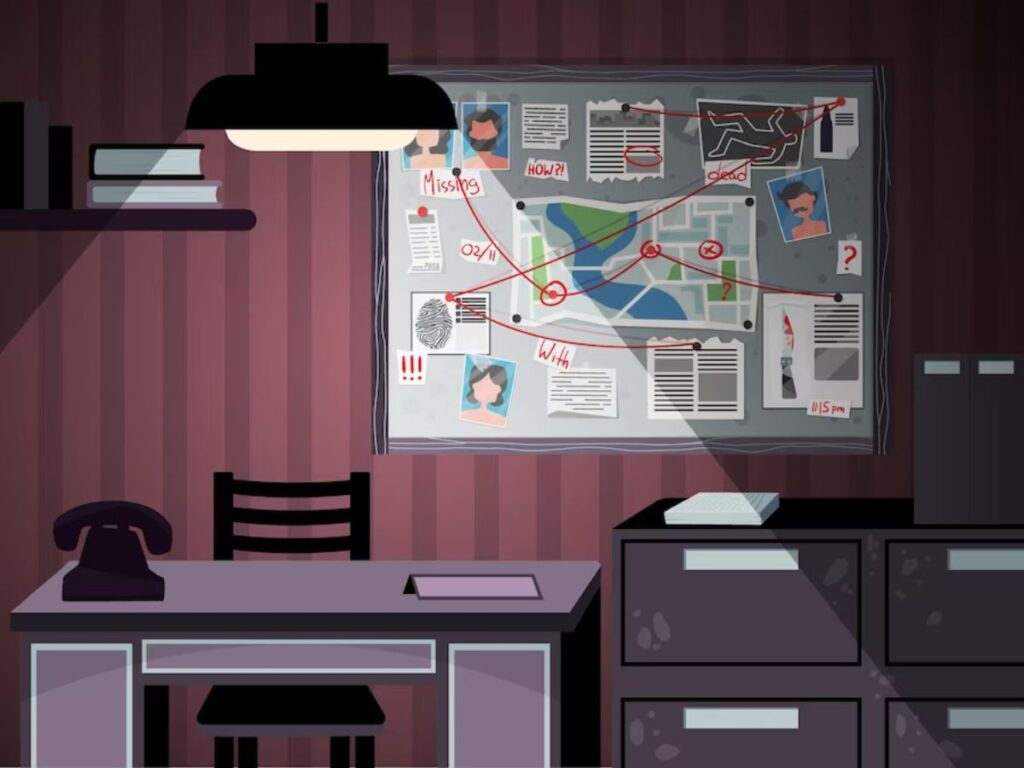
How Can I Train My Brain to Escape?
Preparing your brain for escape room success involves improving problem-solving, observation, and critical thinking skills. Engaging in puzzles, brain teasers, and team-building activities can help sharpen these abilities and enhance your escape room experience.
Practice Problem-Solving Skills in Everyday Life
- Solve puzzles or brain teasers
- Reflect on past challenges and learn from them
Focus on Effective Communication and Teamwork
- Engage in team-building exercises
- Improve your active listening skills
Think Outside the Box and Be Creative
- Embrace new experiences and challenges
- Foster a curious and open-minded attitude
Use Clues and Hints Wisely
- Practice deciphering hidden messages or codes
- Cultivate an observant nature
Keep Track of Time and Prioritize Tasks
- Develop time management skills
- Learn to balance multiple tasks simultaneously
Escape rooms are an incredible experience that anyone can enjoy, regardless of intelligence or age. So, why not gather your friends, family, or coworkers, and take on the challenge at Lock N Escape, Hyderabad’s top escape room destination?
Trust us; you’ll have a blast!
Remember, it’s not about being the smartest person in the room—it’s about embracing the adventure, working together, and having fun. So, go on, give it a try. You never know—you might just discover hidden talents you never knew you had!
Cheers!
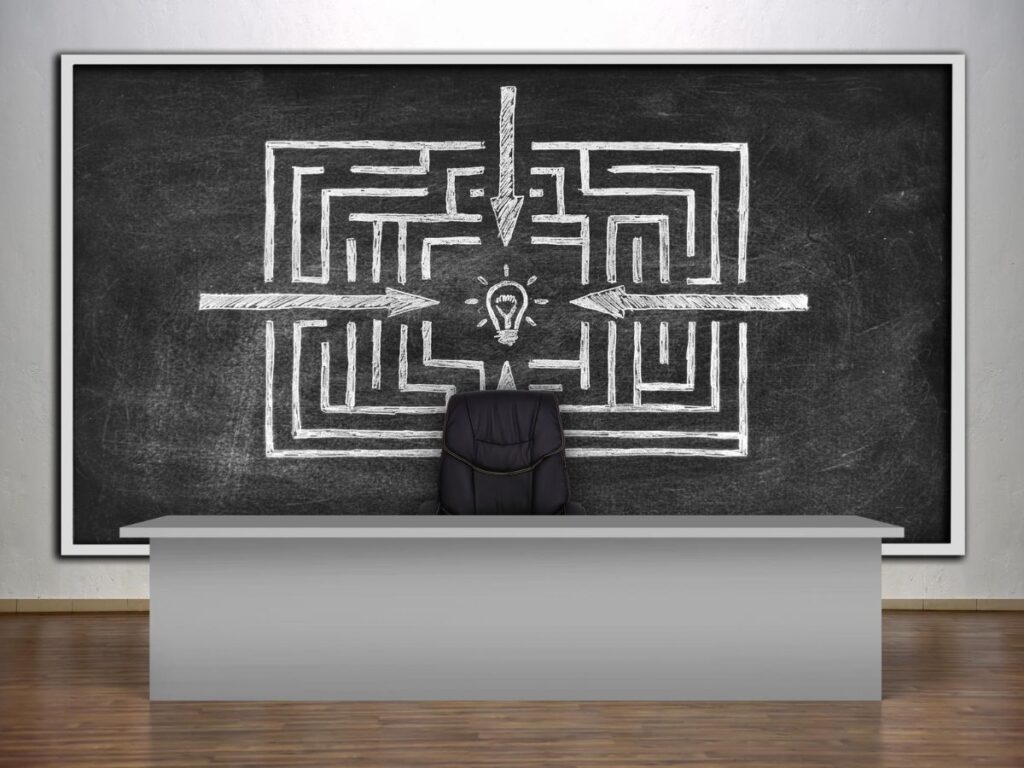
Are Escape Rooms Educational?
Oh, absolutely! Escape rooms are not just fun and entertaining. They’re educational too! Here’s how:
- Problem-solving skills: Escape rooms challenge your brain to solve puzzles and riddles, which helps sharpen your problem-solving abilities.
- Teamwork: You’ll learn the importance of collaboration and communication when trying to escape, which is a valuable life lesson.
- Critical thinking: To beat the clock, you’ll need to think critically and analyze clues and situations, a skill that also comes in handy in real life.
Are Escape Rooms Good for Your Brain?
You bet they are! Here’s the kicker: escape rooms can actually be a mental workout for your brain. Here’s why:
- Cognitive exercise: Solving puzzles and riddles exercises your brain, keeping it sharp and healthy.
- Memory boost: Remembering clues and codes strengthens your memory and recall abilities.
- Stress relief: Escape rooms are a fun way to unwind, and we all know how important it is to keep stress levels in check for a healthy brain.
What Are the Benefits of Escape Rooms?
Escape rooms offer a boatload of benefits, both mental and physical. Here’s a quick rundown:
- Improved communication skills: Participants must communicate effectively to solve puzzles as a team.
- Enhanced creativity: Escape rooms require thinking outside the box and developing innovative solutions.
- Time management: You’ll learn to prioritize tasks and make quick decisions under pressure.
- Increased self-confidence: Successfully escaping boosts self-esteem and confidence in one’s abilities.
- Social bonding: Escape rooms are a great way to bond with friends, family, or coworkers.
Are Escape Rooms Healthy?
Why, yes! Escape rooms can be quite healthy, offering mental and physical benefits. Here’s how:
- Mental health: Escape rooms provide a fun way to relieve stress, improve focus, and boost mood.
- Physical activity: Though not a full-blown workout, escape rooms require some physical movement, like crawling or lifting objects.
- Mindfulness: Being present and fully engaged in the experience helps improve mindfulness and overall well-being.
So, there you have it! Escape rooms are not only fun and challenging but can also be educational, good for your brain, and healthy. Now, who’s up for an escape room challenge? 🧩

